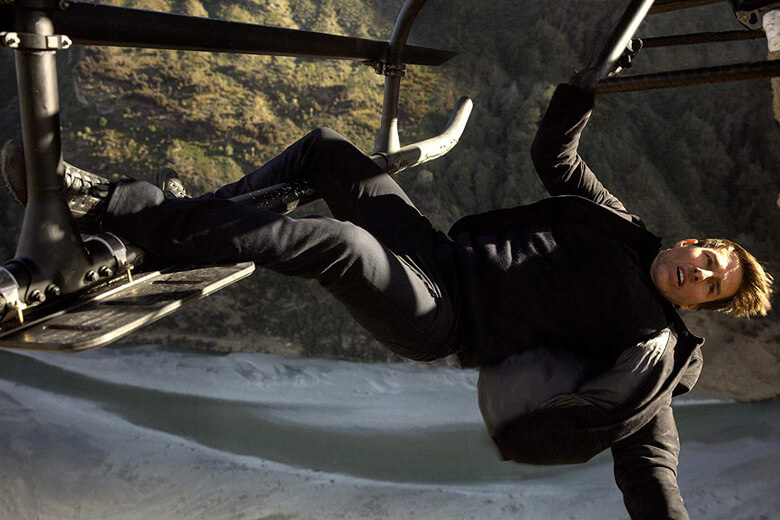Today a reflection of preparing in advance so that we can discard what we prepared.
I then share similar learnings from an interview with the director and writer of the latest Mission Impossible movie.
I love movies and recently watched this movie. It was terrific, and as the interviewer noted, somehow they have got better and better with the last three in the series. Why ? Part of the secret lies in that balance between planning and then discarding what was prepared.
So, first from my own experience. One area of speciality for me over a number of years is in what can, I guess, be called “Facilitating strategy days for leadership teams” though the role is typically different.
In order to do this well, the preparation can be intense. I’ve read as much as 700 pages of briefing documents to be ready for a two-day meeting, I’ll typically have at least 3 or 4 calls/meetings with the leader of the group (eg CEO, Founder), read up on participants biographies etc. After all of that, I will then have multiple calls/meetings with my longtime collaborator (who lives her intent by making my life easy!) as we refine down the map and tools for what is normally a one or two day residential offsite meeting.
After all of that intense and rigorous planning, on the day the power of all of that is that I feel free to throw out the script at any moment. I keep the loose structure of the day or two days, I keep awareness of the flow, the intended outcomes, but I am fully ready to discard all of the content, timings, tools I had planned so carefully to use.
Why would one do all of that preparation and then throw it away?
On the one hand, no matter how well we prepare, situations and events may change, and there is no benefit to sticking to a plan when the ground has shifted. As Mike Tyson famously said:

When you get punched in the face, it is exactly your level of preparation and experience in the field that allows you to act from instinct. In fact, it is in those instinctive moments that some of the most masterful athletic moments come. It is often called being in “Flow”.
What if you consciously make a choice in your planning so that you choose to act from instinct in that way? The magic, then, becomes in reading what has not been seen in the planning, sensing a deeper and/or different area to explore that only reveals itself to you as you stand at the front of the room and read the group.
A phrase I love is that I choose to : “have only enough structure to allow flow”
Thus, I plan rigorously but then give myself full permission to use little or none of what I have planned for the event.
I recommend this to anyone in any field, and also recognise that it may take a level of increased trust in self to do so (and that is where the rigorous preparation helps!).
So, to the interview by Sam Adams in Slate:
The Writer-Director of Mission: Impossible—Fallout on Improvising a Blockbuster

The article and interview takes us through the history of work of Christopher McQuarrie, who both wrote and directed the latest Mission Impossible movie.
As the interviewer asked him about the journey from writer to director and doing both in this movie, McQuarrie noted some thoughts that I feel resonate strongly with my thoughts above about taking rigorous planning and then letting go of the need to execute the plan and simply flow.
“I was learning over time that a director’s job is not to protect the screenplay. The director’s job is to challenge the screenplay, defy the screenplay, know when to ignore the screenplay. A writer’s job is just to provide all the information that you can possibly ever need—but that’s not a guarantee that you need that information. Those are two very different skillsets, and you have to be able to switch from one to another.”
Later, he then talks about the fact that his true goal in this latest movie was to focus on the characters of the main players in the story, and look at what he did with his script and planning in support of that intended outcome!
“So I knew what that sequence was. And because I knew what they were, or I knew at least roughly what they were going to be, I put them aside and I focused on character first”
So, when I watched Mission Impossible – Fallout, after the crazily complex opening explanation of the “your Mission, should you choose to accept it”, I turned to my son and said “wow, that was complicated!”. Not a good start to the movie, I thought.
However, as the director then achieved through the methods he outlined in the interview, the magic happened. For a movie so deep into a two decade-long series to achieve a “Rotten Tomatoes” rating of 97% is unheard of. As I said, a terrific movie.
“have only enough structure to allow flow”
